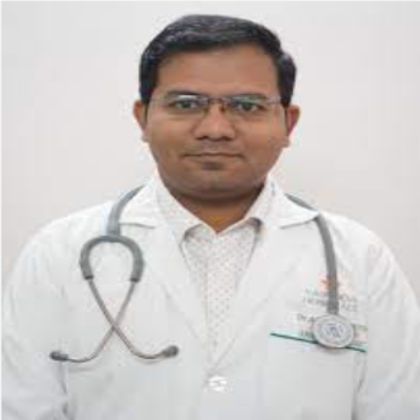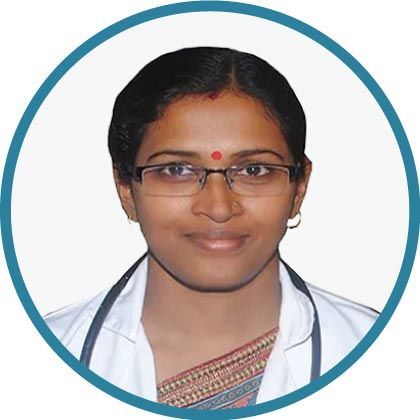Health Check Importance and Frequency
Understand the importance of regular health check-ups and how often you should get screened. Learn how routine tests can help detect issues early, prevent complications, and support a healthier life.

Written by Dr. Rohinipriyanka Pondugula
Reviewed by Dr. M L Ezhilarasan MBBS
Last updated on 14th Aug, 2025

Introduction
Staying healthy is a priority for all of us, but sometimes, we neglect regular health check-ups until something feels wrong. Many health issues, like high blood pressure, diabetes, or even early signs of cancer, don’t show symptoms until they become serious. That’s why regular health checks are essential; they help detect problems early, when they’re easier to treat.
In this article, we’ll discuss why health checks matter, how often you should get them, and what you can do to stay proactive about your well-being.
Why Are Health Checks Important?
Preventive care plays a key role in maintaining your overall health. Understanding the importance of regular health checks can help you stay ahead of potential medical issues. Here's why they matter:
1. Early Detection of Diseases
Many life-threatening conditions, such as heart disease, diabetes, and certain cancers, develop silently. Regular screenings can catch these issues before symptoms appear, improving treatment success rates.
2. Preventive Care
Health checks help identify risk factors (like high cholesterol or blood sugar) so you can take preventive steps before they turn into serious illnesses.
3. Monitoring Existing Conditions
If you already have a health condition (like hypertension or thyroid disorders), routine tests help track progress and adjust treatments as needed.
4. Peace of Mind
Knowing that you’re in good health reduces anxiety. If a problem is detected early, you can address it with less stress.
Consult a Top General Physician for the best advice
How Often Should You Get a Health Check?
The frequency of health checks depends on your age, gender, family history, and existing health conditions. Here’s a general guideline:
For Adults (18-39 Years)
- Basic Check-Up: Once every 2-3 years
- Blood pressure
- Blood sugar (fasting glucose)
- Cholesterol levels
- BMI (Body Mass Index)
- Women: Pap smear (every 3 years) and breast exams
- Men: Testicular exams (self-checks)
For Adults (40-65 Years)
- Annual Check-Up (or every 2 years if healthy)
- Blood pressure, sugar, cholesterol
- Heart health screening (ECG if needed)
- Thyroid function tests
- Bone density (for women post-menopause)
- Cancer screenings (mammograms, colonoscopy, prostate exams)
For Seniors (65+ Years)
- Every 6-12 Months
- Full-body check-up including heart, kidney, and liver function
- Vision and hearing tests
- Bone health and arthritis screening
- Memory/cognitive function tests
Special Cases
- If you have chronic conditions (diabetes, hypertension, etc.) → Get tests every 3-6 months.
- If you have a family history of diseases → Start screenings earlier and more frequently.
What Tests Should You Consider?
Here are some common health checks you may need:
1. Blood Pressure Test – High BP can lead to heart disease or stroke.
2. Blood Sugar Test – Detects diabetes or prediabetes.
3. Cholesterol Test – High cholesterol increases heart disease risk.
4. Thyroid Test – Checks for hypothyroidism or hyperthyroidism.
5. Liver & Kidney Function Tests – Ensures these organs are working well.
6. Cancer Screenings – Mammograms, Pap smears, PSA tests, colonoscopies.
7. Vitamin D & B12 Tests – Many people have deficiencies affecting energy and immunity.
Get Your Health Assessed
Tips for Better Health Management
Taking charge of your health starts with small, consistent steps toward better habits.
1. Maintain a Balanced Diet – Eat more fruits, vegetables, whole grains, and lean proteins.
2. Exercise Regularly – Aim for at least 30 minutes of walking or moderate activity daily.
3. Avoid Smoking & Limit Alcohol – Both increase the risk of chronic diseases.
4. Manage Stress – Practice yoga, meditation, or deep breathing exercises.
5. Get Enough Sleep – 7-8 hours of quality sleep helps the body recover.
When Should You See a Doctor Immediately?
Don’t wait for your next scheduled check-up if you experience:
- Unexplained weight loss or gain
- Persistent fatigue
- Chest pain or shortness of breath
- Sudden vision changes
- Severe headaches or dizziness
Final Thoughts
Your health is your greatest wealth. By getting regular check-ups, you take control of your well-being and reduce the risk of serious illnesses. Start today; your future self will thank you!
Consult a Top General Physician for the best advice
Consult a Top General Physician for the best advice

Dr. Rajib Ghose
General Practitioner
25 Years • MBBS
East Midnapore
VIVEKANANDA SEBA SADAN, East Midnapore

Dr. Chethan T L
General Physician/ Internal Medicine Specialist
5 Years • MBBS, MD, DNB (General Medicine)
Bengaluru
Apollo Medical Center, Marathahalli, Bengaluru

Dr Vinay Kumar A V
Nephrologist
8 Years • MBBS, MD - General Medicine, DM - Nephrology
Bilaspur
Apollo Hospitals Seepat Road, Bilaspur

Dr. Mohamed Azeem
General Physician/ Internal Medicine Specialist
2 Years • MBBS,MD(Internal Medicine) CCEBDM
Karaikudi
Apollo Hospitals Karaikudi, Karaikudi

Dr. Sandhya Chandel
General Physician/ Internal Medicine Specialist
16 Years • MBBS, MD (Int. Med.), IDCCM
Bilaspur
Apollo Hospitals Seepat Road, Bilaspur
(100+ Patients)
Consult a Top General Physician for the best advice

Dr. Rajib Ghose
General Practitioner
25 Years • MBBS
East Midnapore
VIVEKANANDA SEBA SADAN, East Midnapore

Dr. Chethan T L
General Physician/ Internal Medicine Specialist
5 Years • MBBS, MD, DNB (General Medicine)
Bengaluru
Apollo Medical Center, Marathahalli, Bengaluru

Dr Vinay Kumar A V
Nephrologist
8 Years • MBBS, MD - General Medicine, DM - Nephrology
Bilaspur
Apollo Hospitals Seepat Road, Bilaspur

Dr. Mohamed Azeem
General Physician/ Internal Medicine Specialist
2 Years • MBBS,MD(Internal Medicine) CCEBDM
Karaikudi
Apollo Hospitals Karaikudi, Karaikudi

Dr. Sandhya Chandel
General Physician/ Internal Medicine Specialist
16 Years • MBBS, MD (Int. Med.), IDCCM
Bilaspur
Apollo Hospitals Seepat Road, Bilaspur
(100+ Patients)








.jpeg)
.webp)
